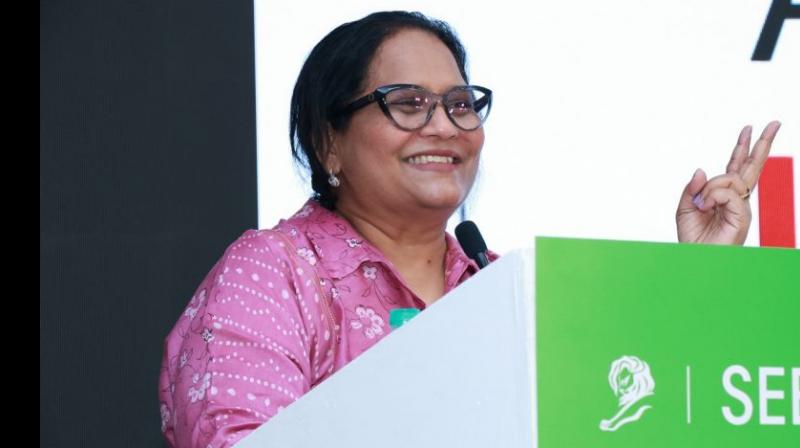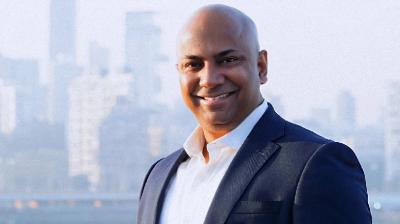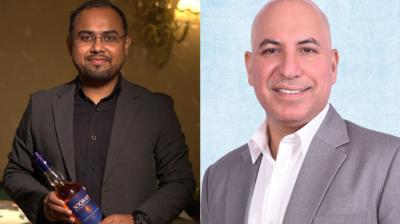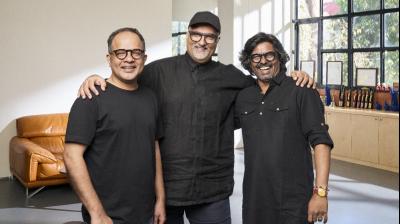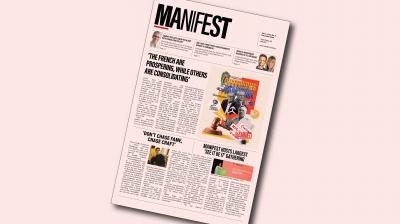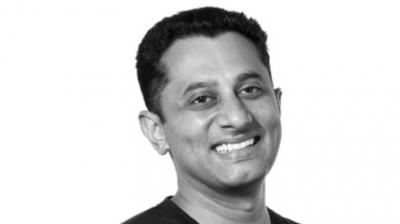Delivering the session titled ‘The Art of Leadership’, Hephzibah Pathak, executive chairperson, Ogilvy India, offered an unvarnished, deeply human perspective on what it takes to thrive, especially as a woman, in an industry defined by constant reinvention at the first edition of the Cannes Lions International Festival of Creativity’s See It Be It Mumbai chapter, hosted by Manifest and Indian Creative Women in association with Snowball Studios on 14 November.
Describing the relentless juggle between personal responsibilities and professional expectations, Pathak said, “There are days when one feels like one is going to go under.” Not shying away from vulnerability, she admitted: “All we need to hear is one negative remark that can unmake everything we know about ourselves.”
Pathak emphasised that everyone experiences self-doubt and anxiety, but it's how we respond that matters. “If something happens, we worry. If something doesn’t happen, we worry as well.” She reminded the audience that despite all the negativity, “the percentage of your worst days that you’ve made it through is 100%.”
She urged the audience to confront the patterns of anxieties and self-limiting beliefs with intention. "We are fragile, we're messy, but we are stronger than we believe, and we're smarter than we know."
Recounting her professional journey, Pathak described her career as 'a marathon with many sprints' - a reminder that growth does not follow a straight line. “There will be times when you will feel like you’re going back and forth, but that’s okay. Consistency is key,” she emphasised.
That consistency, she explained, must be deliberate, structured and conscious. Sharing her personal guide to building a meaningful and resilient career, she spelt out 6 Cs as the central framework: Conscious competence, Career intentionality, Connection, Character, Comfort (or discomfort), and Care.
Pathak broke down the psychological journey of skill-building through four levels of competence, moving from not knowing what you don’t know to the muscle-memory ease of unconscious competence. But she challenged the belief that unconscious competence is the highest level, saying, “I reversed it.”
For her, conscious competence - being fully aware, intentional, and mindful about one’s growth - is where the ‘real magic’ and transformation lies. “You can do anything you want,” she asserted, “but what you need is a decision. There is no try - there is only a ‘do’ or do not.” This philosophy guided some of the most pivotal moments in her career, she added.
Pathak also emphasised the importance of intentionality, feedback, and emotional intelligence.
She shared an exercise she undertook mid-career, inviting candid, unfiltered feedback from seniors and peers. “I gave them permission to tell me what I did well, and what I didn’t,” she said. The experience was confronting, even painful as she realised that all of her strengths could also be her weaknesses. Her perfectionism, she revealed, was exhausting her teams, for instance. It was a revelation that reshaped her leadership philosophy. “That is the magic of conscious, mindful feedback,” she said, adding, “Calibration must be continuous.”
Pathak also related an example of a time when a client refused to work with her. Rather than withdrawing, she built a deliberate 90-day plan designed around the outcomes the client cared about most. “I created so many visible proof points that nobody could ignore the value I added,” she said. This resulted in the same client going on to entrust her with their business for two decades.
Stressing that competence can only take a leader so far, she said, “Beyond a point, what defines you as a leader is emotional intelligence.” This too, she added, must be learned intentionally. It requires attention and intention, because “connection is equal to intention plus attention.”
She urged the audience to be curious, not judgmental. “Why did you do this?” conveys judgment, she noted. “What made you do this?” opens a window to understanding. The distinction, she said, changes everything.
Listening - true listening - was another theme she stressed on during the talk. “Listen to understand, not react. When you feel triggered, practice the pause,” she advised. It is in the pause, she explained, that emotion settles and clarity returns.
Defining character, Pathak said: “A person is what a person does,” adding, that consistency between words and actions builds trust, and “trust is foundational to any relationship.”
On growth, she was direct: “If you are not uncomfortable, you are not growing. Comfort is stagnation.” New ideas, she stressed, should unsettle you. Failure must be reframed not as the opposite of success but as a part of it. “Own your mistakes,” she said. “When you take the shame out of it, nobody has power over you.”
Finally coming to the ‘C’ most of us tend to neglect - ‘Care’ or self-care, she admitted, was a lesson she learned late. “If I had understood this well, I wouldn’t have some of the health problems I have today.”
Whether through exercise, mental wellness practices, or a simple gratitude journal, she urged the audience to invest in their wellbeing: “Anxiety keeps you in the future. Regret keeps you in the past. Gratitude keeps you in the present.” Above all, she emphasised kindness - to others, and especially to oneself.
She reminded the listeners that progress may be “messy, imperfect, non-linear”, but it’s entirely possible. “Don’t wait to be ready,” she exhorted. “Just take the first step.”
“Women are amazing. So if you do the work, you can really actualise your potential and become absolute badasses,” she signed off.

.jpg)
